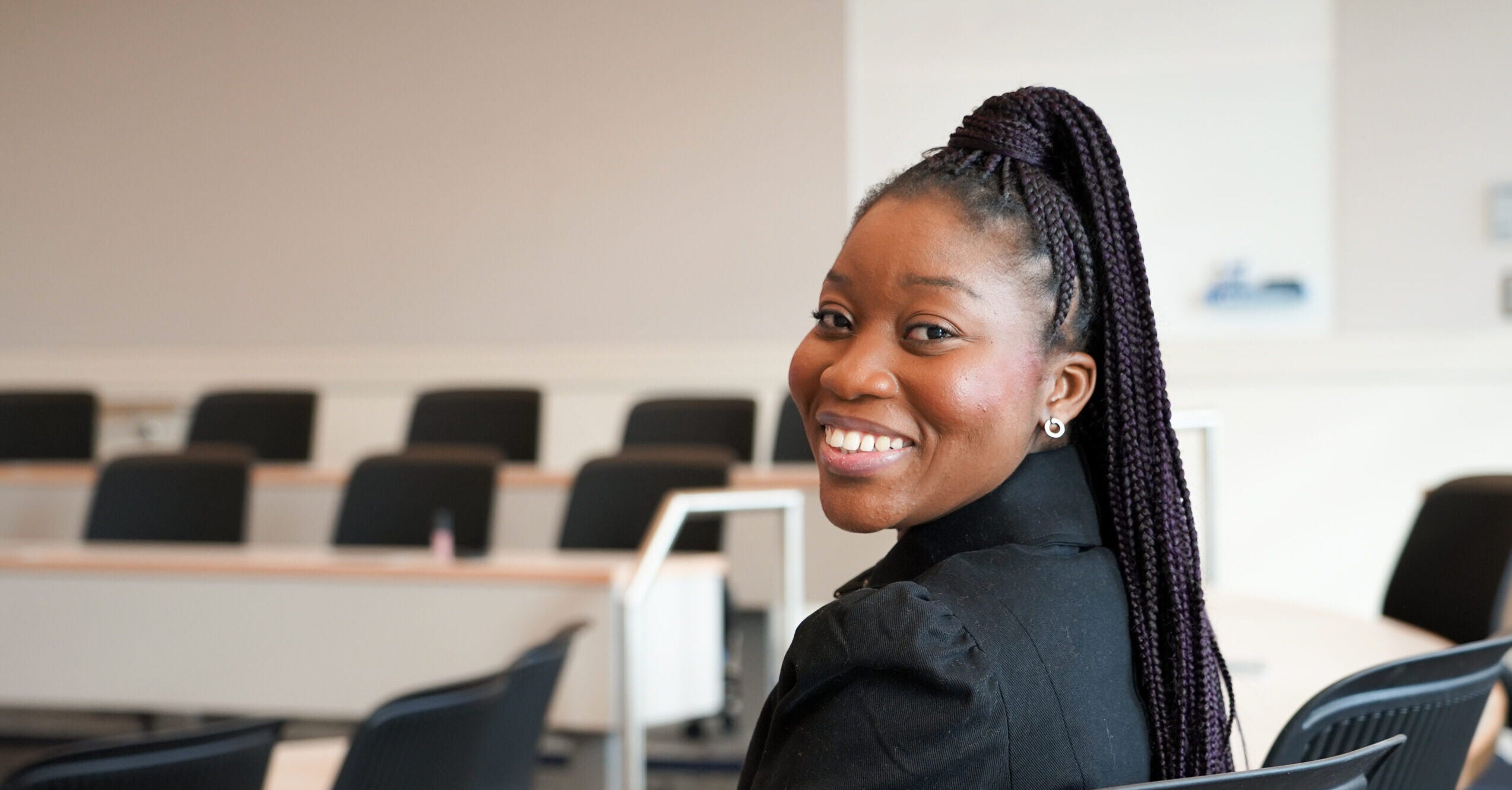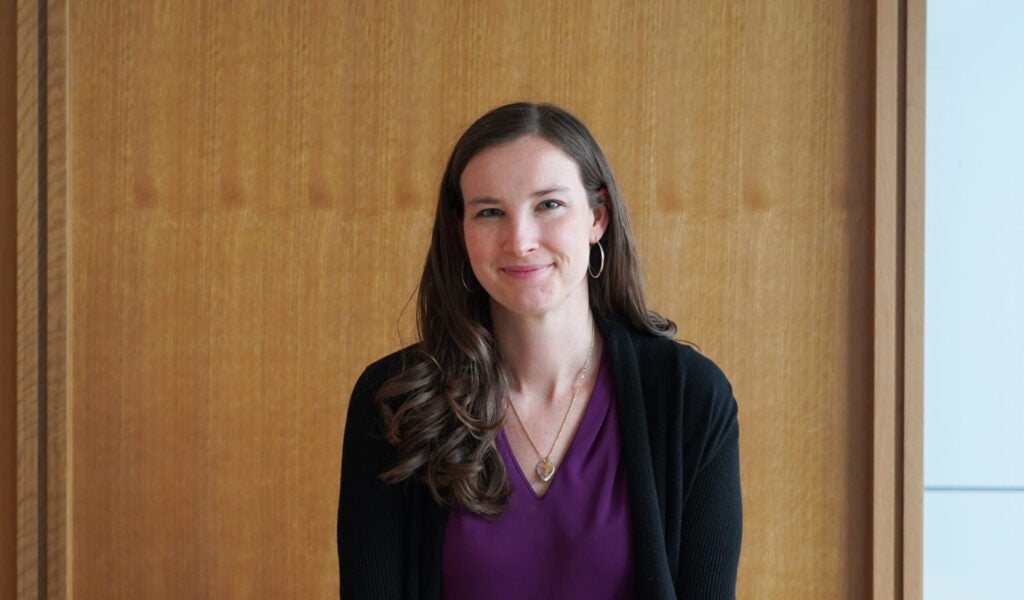Inspired by pioneering female leaders, a policy student confronts gender equity across Africa
For Nadia Baye (MIDP’26), policymaking is more than just a profession — it’s a catalyst for social change. Raised in Ghana, Baye chose the McCourt School of Public Policy to gain the skills necessary to improve outcomes for women across Africa.
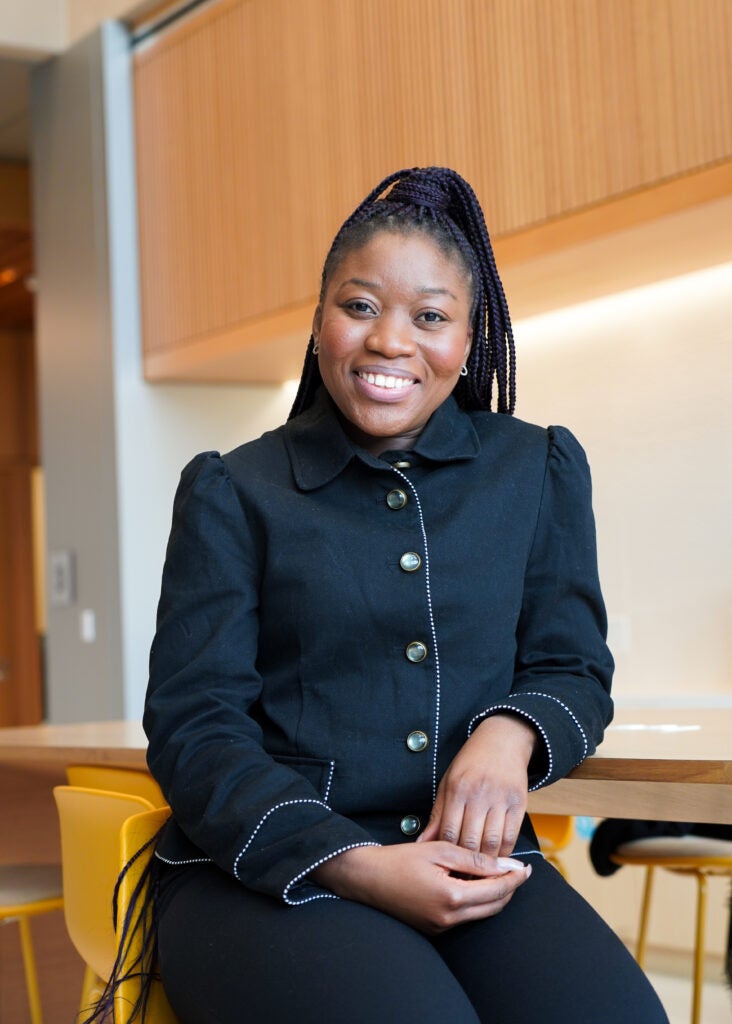
Nadia Baye (MIDP’26)
Driven to understand the economic forces shaping Africa, Nadia Baye (MIDP’26) earned an undergraduate degree in economics and francophone studies at Davidson College, where she became interested in how currency and trade policies influence development across the continent.
For her undergraduate thesis, Baye examined the macroeconomic effects of the CFA franc, a currency used in Francophone Africa. While conducting research in the Ivory Coast, a conversation with a taxi driver on her way to an interview revealed the enduring influence of economic policies from decades past and their ongoing impact on his daily life.
“That moment made me realize that policy isn’t just about data but people’s lived experiences,” said Baye. “It cemented my belief that policy must not only be data-driven but also deeply human.”
Bridging policy and grassroots advocacy
Before enrolling in the McCourt School’s Master of International Development Policy (MIDP) program, Baye worked with UN Women and the African Union as part of a team that championed women’s participation in politics, business and governance across sub-Saharan Africa. She also helped organize conferences connecting presidents, ministers, and grassroots leaders through the African Women Leaders Network (AWLN). For her, the mission was clear: Bridge the gap between decision-makers and the communities impacted by their policies.
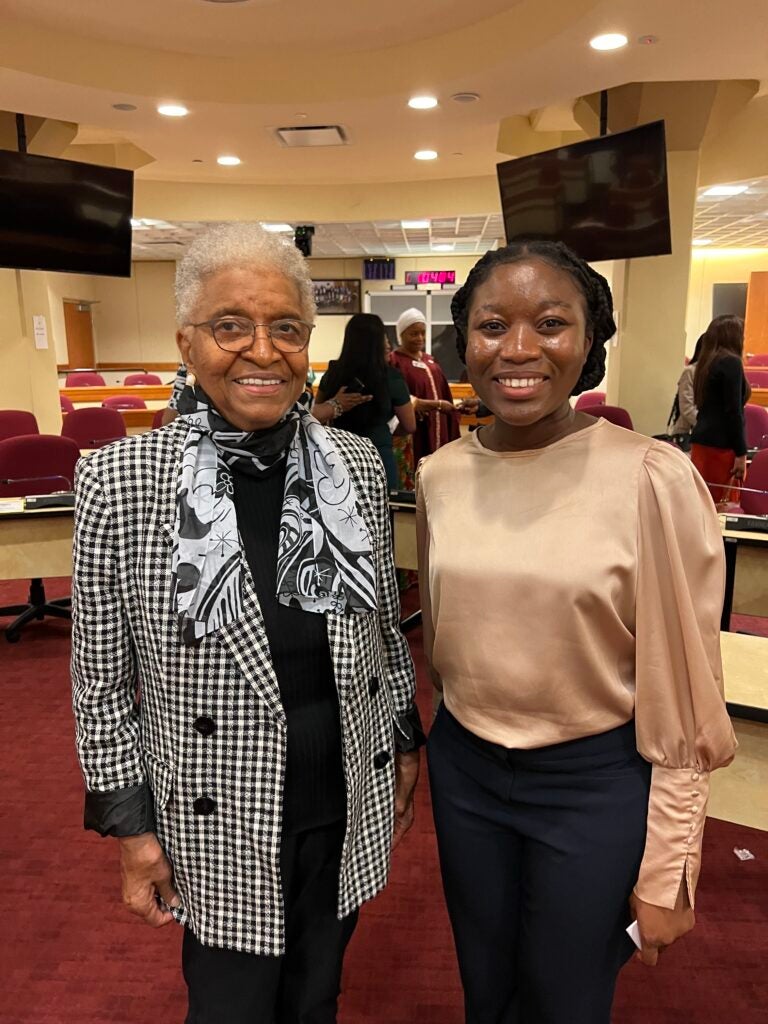
Baye and Former President Ellen Johnson Sirleaf of Liberia.
Baye’s advocacy extended beyond promoting women’s leadership. She understood that achieving gender equity also required cultural change. The team she served on coordinated the Circle of Champions — a coalition of six African male presidents committed to institutionalizing efforts against gender-based violence within their governments.
“True progress requires buy-in from every level of society,” said Baye, who draws inspiration from Africa’s pioneering female leaders, including Ellen Johnson Sirleaf, Africa’s first female president, and Joyce Banda, former president of Malawi. Watching them lead “with grace under pressure” and interacting with them during some of the AWLN sessions, she saw how they carried the weight of high expectations yet remained steadfast in their commitment to uplift others.
“These female leaders demonstrated that true power is found not in status but in service, accountability and the impact one leaves behind,” she said. “They led with preparation and discipline and as informed decision-makers. Their approach has contributed to my understanding of leadership as being threefold: self-leadership, selfless leadership and servant leadership.”
Building the quantitative skills to drive change
For Baye, learning isn’t just about acquiring knowledge — it’s about transformation. She arrived at the McCourt School determined to complement her advocacy background with rigorous quantitative and analytical skills. Yet, she gained more than technical training; she found a community that challenged her assumptions, pushed her boundaries and inspired her to think boldly.
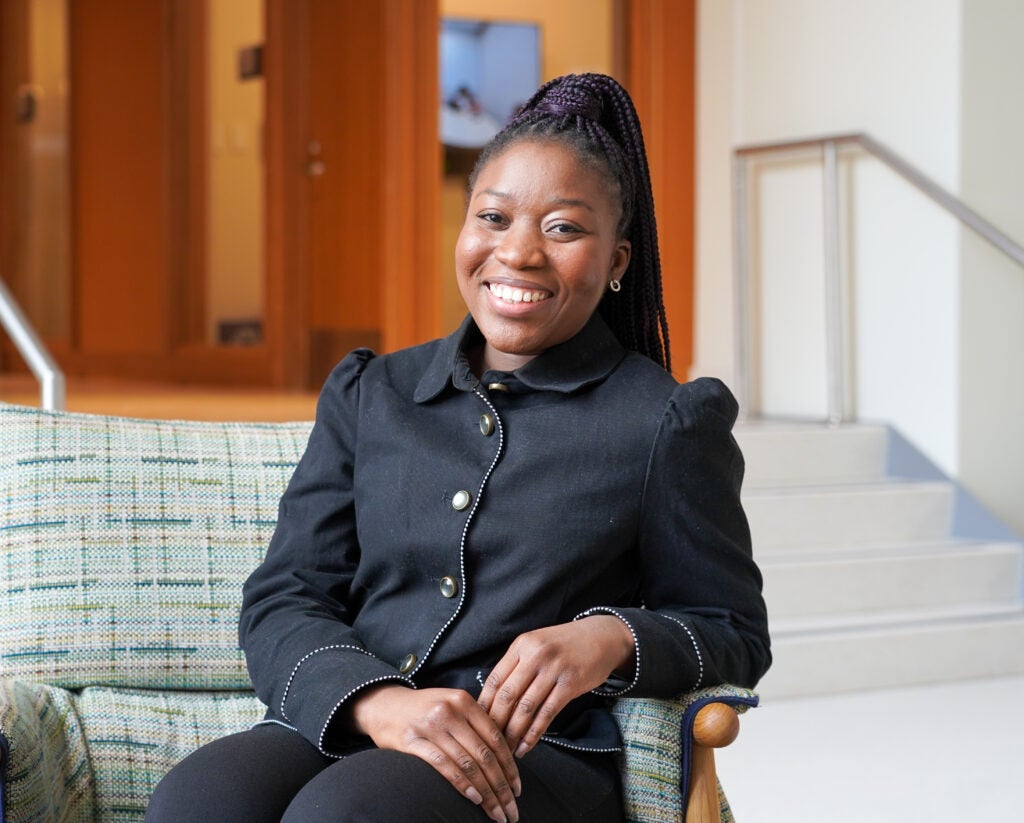
Nadia Baye (MIDP’26) leverages her previous work experiences at UN Women and the African Union in her research on gender equity and development policy at the McCourt School.
Baye’s McCourt School education has extended beyond the classroom. Through seminars, faculty mentorship and policy discussions with leading experts and peers, she has broadened her perspective and deepened her understanding of policymaking. Baye is actively involved in the African Policy Student Association (AfriKa), the Women in Public Policy Initiative and McCourt Policy in Practice (MPiP). As MPiP’s communications associate, she supports fundraising and outreach for pro-bono consulting projects in Latin America, further bridging the gap between theory and practical implementation. She was recently invited to join AfriKa’s leadership board.
Pursuing a career in global development
In the summer of 2025, Baye will implement her policy knowledge and gain hands-on experience in development economics and governance through the MIDP Summer Experience . Ultimately, she envisions a career at the intersection of education, economic development and African policy reform. Whether as a research analyst, policymaker or leader in international development, her goal remains constant: Ensure policy is effective and rooted in the realities of the people it serves.
With her unwavering commitment to gender equity and economic development, Baye is poised to make a lasting impact — not only in Africa but on the global stage of policy and governance.
